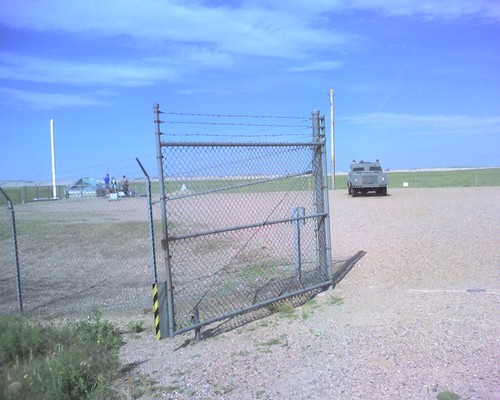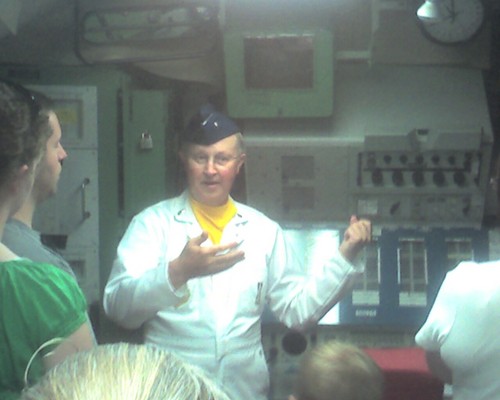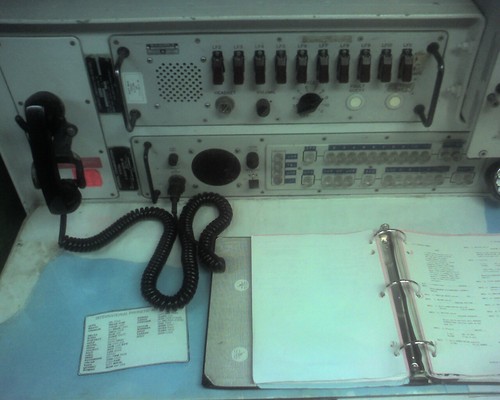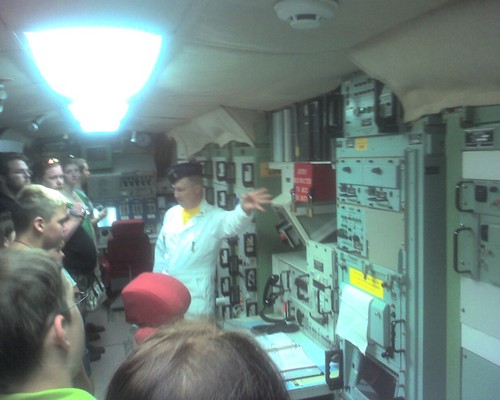THE WORLD: "Going Nuclear: Global interest in finding alternative sources of energy may presage a new arms race," by Joby Warrick, Washington Post National Weekly Edition, 19-25 May 2008, p. 18.
Forty developing/emerging economies from Middle East/North Africa and Latin America tell the UN they're interesting in starting nuclear power generation programs.
Naturally, the proliferation crowd in national security is freaking, but maybe $150-barrel oil is driving this more—you think? People are amazed when Gulf nations with plenty of oil and gas explore the same, but if you check out their stunning rise in domestic consumption of the same, that too is not that odd, because it's leaving them with far less to export and when they don't export but consume their stuff, guess what? No income.
Arguably, both Saudi Arabia and Turkey, serious rivals of Iran, have a case for strapping on if Iran's going to man-up with a weapon capacity. Turkey's legitimately in the category of great power-with-nukes whether there's an Iran or not, Saudi Arabia less so, since their guarantor of security is ultimately their reserves, and the great desire by numerous external great powers to keep it all safe and accessible.
Beyond that, the arguments are reduced to this: once Iran has its nukes (unpreventable in my opinion), there are two ways this goes forward.
First, Iran-the-nation-state decides to cash-in on the advantage and forces status-enhancing and regime-recognizing contacts/negotiations/for with both regional powers and extra-regional great powers, like us. In that pathway lies mutual recognition between Israel and Iran, which is a regional deal-enabler if that's the way Iran wants to go, getting explicit in its we-are-the-Shia-champions role, because at that point, the scenario in which Israel takes them down or gets us to do the same or Saudi Arabia similarly pushes us basically evaporates. Iran, at that point, is out of the closet as Shia champion, confident enough that it can't be suppressed in the role. But that's an Iran that puts the failed revolution largely to bed and decides it's going to play more conventionally. That's clearly not an Iran led by Ahmadinejad; it's one where the pragmatic conservatives convince themselves and the Supreme Leader that there's a better way out of their current economic situation than playing East v. West, a dynamic currently working, given the choices of the Bush administration.
In that scenario, some regional players may logically decide they want nukes too, in order to make sure they've got seats at those tables. Not actually necessary, but they may come to that conclusion anyway.
Or, second, Iran-the-revolutionary-movement continues to shoot off its mouth and signals that it does not recognize the nuclear weapons rules of the road and isn't interested in cashing-in on the nukes but instead intends to use them as perceived threatening collateral for anything they continue to pursue in supporting regional non-states like Hamas and Hezbollah. In this path, Israel will strike eventually, and we'll back them up.
You can say, Why not stop Iran from the bomb?
If Iran is truly committed, and I think they are, then I don't think we'll ever muster the international consensus to stop the dynamic from unfolding. There's just too much East v West tension in the system: the East simply isn't sufficiently incentivized to trust us enough and not—in contrast—prefer to see our tie-down continued in Afghanistan and Iraq. If the tie-down ends, we might start a worse war, in their opinion, with Iran, or worse, turn on them next, as the neocons around McCain already signal their desire to do (see Kagan's latest book and the "league of democracies" bit).
As for Iran's actual capabilities, I've described my thinking on that for years now: the sloppy asymmetrical deterrence already exists, thanks to our past and ongoing strategic choices (the tie-down both operational and diplomatic). By that I mean, we can't make the conventional preventive strike/hard kill takedown, and conventional bombing, while gratifying emotionally, won't dead-end this pathway. Ditto for Israel. So we're both faced with going nuclear to prevent Iran from getting nuclear.
For now, Iran's playing it fairly cleverly: they've got the gun (crappy Scud-deluxes/duplexes from North Korea), they're making gunpowder (enrichment, with great public fanfare), and they're eschewing bullet manufacturing (the NIE report)—for now. As I've said: pretty clever and somewhat Japanese, with a lot of lip-flapping added in.
Iran may choose to never cross the bullet-line, and continue in this belligerent vagueness, but that seems sub-optimal over the long haul, getting them neither regime security nor economic opportunity (they can be China's energy whores to the max, but as they would eventually find out, it may be the devil and it may be the Lord, but you gonna have to serve somebody!). Nor does it allow them to capitalize on the Shia revival.
But what it would do, if Ahmadinejad's cohort prevails in 2009 (the election), is allow the revolution revivalists to continue to put off tough economic decisions and pretend that the Fidel Castro route works—with oil. Problem there is that the demographics don't favor that path for too much longer. Students started this party and, given enough non-opportunity, they can just as easily end it.
So again, for me, the discussion with accepting some of the strategic realities I've described and unwinding our unleveraged position—the great legacy of Bush-Cheney.
 Thursday, July 3, 2008 at 7:47AM
Thursday, July 3, 2008 at 7:47AM 






















